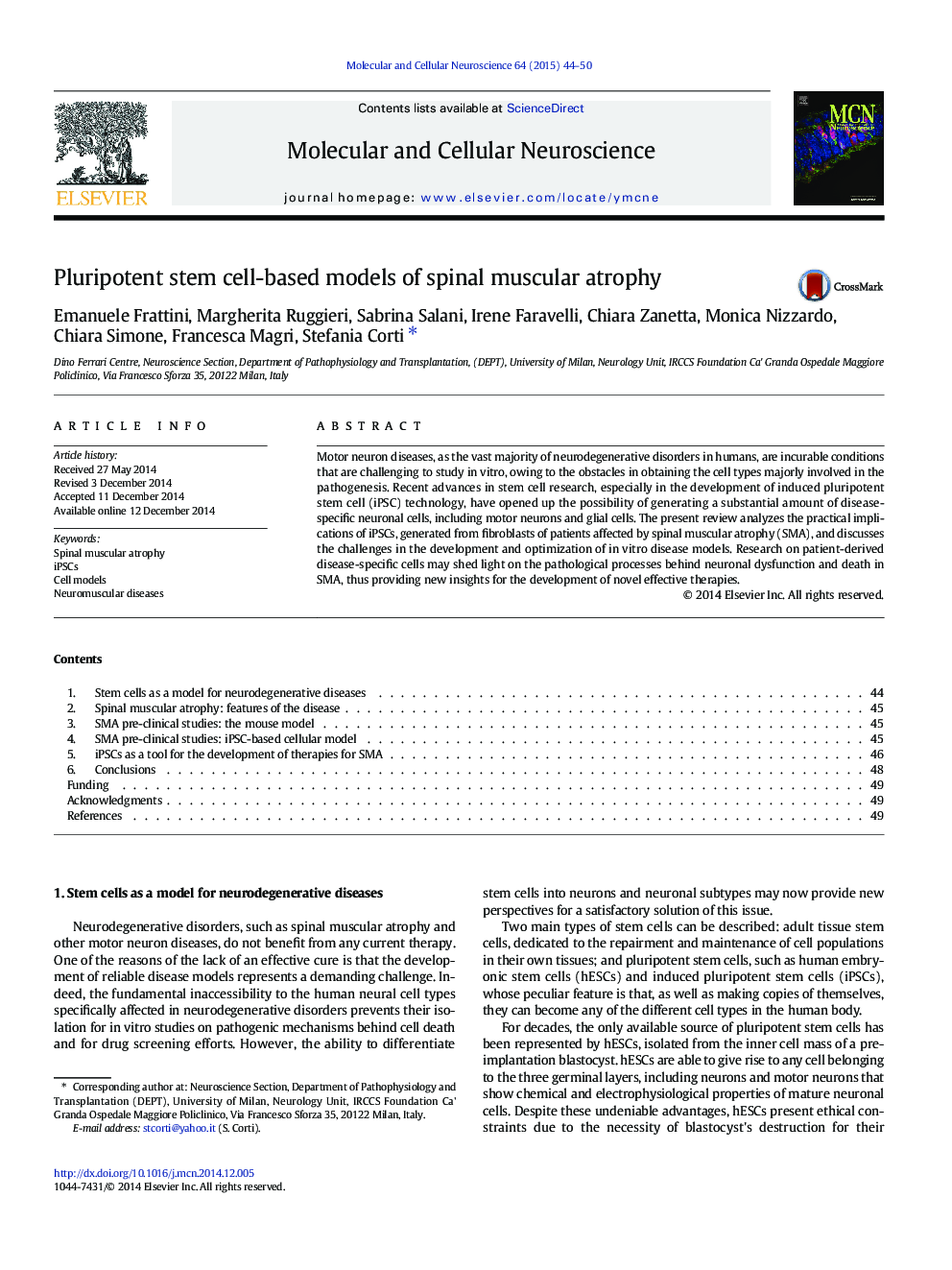| Article ID | Journal | Published Year | Pages | File Type |
|---|---|---|---|---|
| 8478590 | Molecular and Cellular Neuroscience | 2015 | 7 Pages |
Abstract
Motor neuron diseases, as the vast majority of neurodegenerative disorders in humans, are incurable conditions that are challenging to study in vitro, owing to the obstacles in obtaining the cell types majorly involved in the pathogenesis. Recent advances in stem cell research, especially in the development of induced pluripotent stem cell (iPSC) technology, have opened up the possibility of generating a substantial amount of disease-specific neuronal cells, including motor neurons and glial cells. The present review analyzes the practical implications of iPSCs, generated from fibroblasts of patients affected by spinal muscular atrophy (SMA), and discusses the challenges in the development and optimization of in vitro disease models. Research on patient-derived disease-specific cells may shed light on the pathological processes behind neuronal dysfunction and death in SMA, thus providing new insights for the development of novel effective therapies.
Related Topics
Life Sciences
Biochemistry, Genetics and Molecular Biology
Cell Biology
Authors
Emanuele Frattini, Margherita Ruggieri, Sabrina Salani, Irene Faravelli, Chiara Zanetta, Monica Nizzardo, Chiara Simone, Francesca Magri, Stefania Corti,
